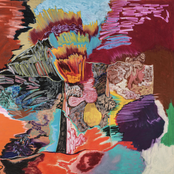As a brief introduction: Ken Nielsen of the Australian group Pinchgut Opera wrote a ‘manifesto for the future of classical music’ as Greg Sandow — who posted it to his blog — describes it, Tim Rutherford-Johnson has added his two cents here and below are mine. Perhaps my European perspective on Nielsen’s Antipodean angle has caused some misunderstandings, in which case apologies.
Nielsen suggests that given that ‘the classical music industry is in decline with an ageing audience base and a low rate of new audience entry,’ a series of measures are needed to make concerts ‘more attractive and accessible.’ Some of his points touch on new music’s role in renewing the artform, which he follows with:
Because elements of the current audience are so conservative, a greater variety of concerts and formats, aimed at different audiences, is probably necessary. Stick with the current stuff for the olds, offer innovation to those excited by it.
Now to me that does not sound like any kind of solution to anything. It boils down to ‘keep doing what we’re doing and do some new music concerts as well’. As Tim Rutherford-Johnson points out, the new music sector doesn’t have a particular problem with either an ageing audience base or new audience entry rates and they already offer music in a large variety of formats driven by an alloy of innovation and necessity. So if as an existing classical music institution you are offering ‘innovation to those excited by it’ and are doing so alongside existing and perhaps better equipped organisations, you must match the quality, integrity and commitment that many of those organisations display if you are to gain the trust of your audiences. If you are going to ‘stick with the current stuff for the olds,’ then you are assuming, given your ageing audience base and low new audience entry rates, that you will let this ‘old people’s package’ drift off into the sunset as the audience dies off.
It is possible that after two hundred years of audiences revering Beethoven’s music, no-one will be interested any more, but it seems unlikely to me. I can, however, imagine shrinking audiences driving this music ‘underground’. One of Nielsen’s proposals is that ‘a concert should be more like communication than a one-sided speech.’ Without getting bogged down in concepts of interactivity and audience par������������ticipation, I believe this is addressed by the idea of intellectual engagement. The reason new music survives is that it demands thoughtful engagement of the listener, an engagement that the audience is directly seeking when they come to a performance. This is not something necessarily required in your average classical concert or desired by its audience. While there are audience members who do engage in this way with older music (perhaps a substantial number) I would suggest that the audiences have long included a large proportion who were seeking light entertainment that was not too taxing, or at the very least something familiar and reliable. However, this audience is now (and has been for some decades) shared with other outlets of music both live and recorded, and the section most likely not to have converted to listening at home or going to other venues is the oldest section, hence the skewed demographic. [I can’t substantiate any of this, but would love to see data that might prove or disprove any of this theorising. Though how one would test for the audience’s intellectual engagement, I’m not sure.]
Given this thesis, I would suggest that more traditional classical music institutions might need to learn from new music groups not what to programme but how to organise. They should prepare for a different audience, perhaps smaller it is hard to be sure, but committed and interested, not just carry on with ‘the current stuff for the olds.’ New venues become important not, as in new music, because of demands made by the music, but because of demands made by the changing audience. Realising that artistic integrity and respect for your audience’s huge capacity for thoughtfulness is essential. An orchestra should be programming Beethoven because it is good, not because it is Beethoven. If a cellist doesn’t like Beethoven, they don’t bother too much with his sonatas and play other music instead. The orchestral musician doesn’t have that prerogative, but the programmer should think along similar lines — ‘I am programming this music rather than anything else, because I believe it is an excellent combination of excellent music.’ Their judgement may sometimes seem eccentric but if it is successful, they will gain the audience’s trust and create stimulating experiences that are surprisingly unique. This is perhaps suggested by Nielsen — ‘change comes about not from strategy meetings but from innovation — new things being tried, some failing, some succeeding’ — but it requires more than just innovation for innovation’s sake. Originality is a potential by-product of a commitment to a deeply-felt, personal quest for beauty.
On the role of new music in traditional contexts, Tim Rutherford-Johnson writes that he is ‘sceptical that introducing new music to historical concerts (which has been going on to little return for decades) is the answer.’ I agree that it isn’t the answer, but this statement absolutely requires the caveat he provides it: ‘unless done with the utmost seriousness and integrity.’ Combining new and old can be effective, a fact probably most often proved in chamber music and solo recitals where the performers choose their own repertoire. They know instinctively when works lie well alongside one another.
What is frequently musically unsatisfying is when things are forced into such a constellation by some external ideology. Programming committees at larger organisations find it very difficult to programme by ear as it were, to propose apposite combinations that they can feel working. Maurizio Pollini’s programme of Bach (arr. Webern), Lachenmann and Brahms with Peter Eötvös and the LSO last month was an excellent example of someone knowing that these three works would fit together musically despite their historical disparity. More often, people programme by theme or by scheme, throwing things in as gimmicks like gratuitous side salads (and they most definitely market them as such). They may believe new music to be a positive addition to their schedules but lack the education they have in Beethoven, Tchaikovsky and Dvořák to be able to programme it effectively.
For me, classical music, or any artform for that matter, doesn’t need a manifesto for tomorrow; it needs every person involved in every facet of the industry/community to strive to be inspired, to think hard, never do anything ‘because that’s what we do’ and deliver quality today. The future will take care of itself.
One caveat: I hold the view that however hierarchies and institutions collapse and transform, humanity will prevail in producing art. Admittedly existing structures can be incredibly important in supporting and promoting creativity, but one must always be wary not to allow those structures to become constraints. Rubble can be an excellent playground, so perhaps I’m not the man to be giving advice.






4 Comments
Nice post, thanks.
“how one would test for the audience’s intellectual engagement, I’m not sure”
It’s *extremely* unscientific, but following Twitter responses to concerts at the #bbcproms confirms the suspicion that many audiences want the familiar and reliable — or, at most, an amplification of that provided by the live setting and the festival atmosphere.
(But then, how different does that make the Proms from Glastonbury?)
Unscientific and presumably represents a demographic skewed at the more youthful end, but true enough.
I suspect that there could be little difference between one audience member’s appreciation for the Proms and another’s for Glastonbury. It’s probably a good comparison and my own experience of a few afternoons spent queuing have probably involved more conversation about promming and other prommers than about music. Of course, the dedication to the institution which season ticket holders at the Proms show is a brand manager’s dream. Similarly with Glastonbury, the extremely various nature of festivals of such scale more or less relies on an audience buying tickets for the festival rather than for the music. That’s not neces��sarily a bad thing as it should permit room for experimentation and creative freedom to a certain extant.
The problem for classical music, if it does rely on an audience seeking the familiar and reliable, is to make sure classical music remains familiar and reliable, which requires education and making classical music part of children’s lives. That way they can feed off the nostalgia later, but to take that approach alone seems moribund to me.
A quick thought: ‘innovation’ in Ken’s manifesto may not be synonymous with ‘new music’ at all, but may refer to a range of innovative approaches to the presentation, marketing, programming, performance [and yes, composition] of music. Innovative presentation might be as simple as changing venues; innovative marketing might simply mean connecting to twitter-conversationalists; innovative programming will depend on how lacking in imagination and intrigue the programming had previously been marked by. Innovation might involve no longer giving ‘concerts’ at all, but finding new ways to connect performance with interested audience-participants.
It’s easy to equate a broad notion such as innovation with a narrow spectrum of cultural expression (composition), but it’s not necessary.
But my goodness, I do like your phrase (is it yours?!) ‘programming by ear’.
You’re absolutely right, that’s something I overlooked in interpreting that point, though I was trying to suggest later that all those areas you mention may well benefit from innovation. That said, I think aiming for a state of affairs where the programmed music is primary is essential. Everything else is is important but complementary; offering musical integrity and quality is fundamental.
As for ‘programming by ear,’ help yourself. I wouldn’t want to claim it as ‘mine’. It is something that perhaps needs advocating more frequently.